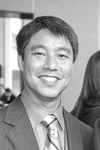
David Inoue
Within the span of less than 48 hours, Derrick Chauvin was found guilty on all three charges put forth in his murder of George Floyd, and then the Senate passed with near unanimity the COVID-19 Hate Crimes Act along with the Jabara-Heyer NO HATE Act.
We should celebrate these both as victories, having held Chauvin accountable for brutally lynching George Floyd over the possibility of a $20 counterfeit bill and the clear rebuke of the seemingly unfettered growth of hate crimes against Asians over the course of the past year. Even more, the addition of the Jabara-Heyer hate crime bill will benefit not only Asian victims, but also victims of all hate crimes.
Juxtaposed, these two events also present another challenge to us as a country. While we welcome the relatively quick response to pass the COVID-19 hate crimes bill, the Chauvin trial highlights the inadequacy of our response to police violence, most often targeting Black and Brown people.
I have seen this equated by some to a higher valuation of Asian lives over Black lives, and while there is some truth behind that sentiment, we cannot allow that to divide us. I believe the real difference is actually demonstrated by the Chauvin verdict, the passage of the hate crimes bill and our failure thus far to pass a justice reform bill.
The case against Derrick Chauvin was one of personal accountability. Chauvin was presented as a rogue officer, acting outside the policies of the Minneapolis Police Department. Prosecution set up the dichotomy that Chauvin could be found guilty without indicting the entire police department or the policing system. When we look at hate crimes, it is the heinous act of an individual and one that can be easily identified, condemned and prosecuted by anyone except for one Senator from Missouri.
What everyone wants to make clear is that they are not that person. They would never be the person placing their knee on George Floyd’s neck, pushing an elder brutally to the ground or gunning down six Asian women or eight former co-workers, four of whom are Sikh. These are the actions of one person from whom we can fully dissociate any connection or similarity.
Yet, what we must seek to address are the structural problems that enable and actually encourage Derrick Chauvin to act as he did. How has our education system taught hate, and how have our gun laws enabled mass shooters to obtain their weapons so easily? As a national ideology, we love to preach personal responsibility, but the reality is that we use that as a means to deflect from collective responsibility.
The result is underfunded public support systems such as Social Security, Medicare, Medicaid and public schools. We allow employers to provide wages below what anyone can be expected to survive on, and we blame the worker for not being industrious enough to pull themselves out of poverty.
And while every individual police officer seeks to distance themselves from what Derrick Chauvin did, we have seen too often, time and time again, that there are others who ARE Derrick Chauvin. Because George Floyd is also Daunte Wright, Christian Hall, Angelo Quinto, Breonna Taylor and so many more names.
A part of our story as Japanese Americans is that of redress. The time that our government made a firm admission of guilt and sought to right a wrong. It is possible for us, the United States, to accept collective responsibility for wrongs that we have committed. It is now time for us to do so and seek reform of our justice system.
It is not enough to seek only individual accountability for crimes that are committed. We need to reform the systems to prevent them from even happening. Derrick Chauvin should not have felt the need to escalate his interaction with George Floyd over a $20 counterfeit bill. We have told the police that we value that $20 more than George Floyd’s life. We can change that message.
We can change our education systems to teach the diversity of American history, the Japanese American story of incarceration, the Chinese Exclusion Act and the true horrors of slavery, lynching and Jim Crow. Perhaps then more will understand the challenges faced by minorities and erase prejudices and replace them with facts.
Until we recognize we are all complicit in the systems that enable Derrick Chauvin and those who perpetrate hate crimes, we cannot change those systems. It is always easier to blame a single bad apple, but when it is the whole system that is rotten, we must all take responsibility and do it together.
David Inoue is executive director of the JACL. He is based in the organization’s Washington, D.C., office.



